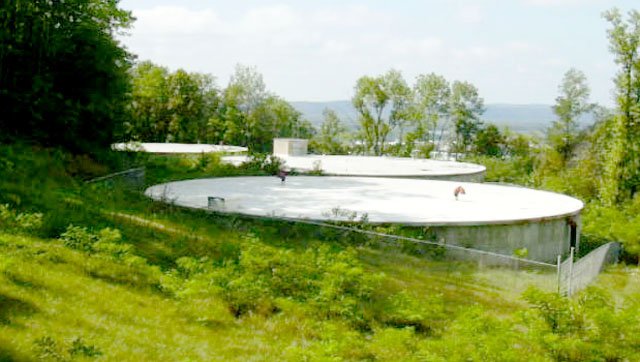GAYS MILLS/SOLDIERS GROVE - As the villages of Soldiers Grove and Gays Mills prepare for the next combined meeting on the joint sewer plant proposal, the Independent-Scout reached out to the Wisconsin Department of the Natural Resources for their input.
DNR wastewater section engineer Chris Bellovary explained some of what lies ahead for the villages as they proceed down the path toward making a decision on building a joint sewer plant. The experienced wastewater treatment engineer said it was important the villages get a qualified wastewater treatment engineering firm to properly design the plant.
Both villages have expressed some dissatisfaction with Davy Engineering, which made a preliminary design for a joint sewer plant. Neither village has Davy under contract at this point and both are actively looking for another engineering firm to take another look at the joint sewer plant proposal.
Locally, Delta 3 Engineering from Platteville might be an option. However, Bellovary and DNR wastewater section chief Jason Knutson indicated there are probably about a dozen qualified engineering firms that could handle designing the joint sewer plant. Both DNR employees declined to specifically name any of the firms on ethical grounds.
In answer to a question about governance of a joint sewer plant, Bellovary noted that there are state statutes governing one municipality receiving sewage from another and the billing involved. He said he believed the effort to put together an intergovernmental agreement for the project would be minimal.
However, Bellovary said it is important that whoever is operating the plant have direct jurisdiction over all of the users. He cited an instance in the Seattle area where a user was putting a toxic substance into the sewer system periodically and killing the microbial bugs at the sewer treatment plant–having control of the sewer users in a situation like that is crucial.
The local version of joint governance would probably just involve a legal agreement between the villages of Gays Mills and Soldiers Grove. In larger areas, the affected communities will often form a Metropolitan Sewage District to govern the sewer system. In Wisconsin, Milwaukee, Madison and few other areas with higher density of populations and multiple municipalities are among the metropolitan sewage districts.
“It only matters how the communities want operate it,” Bellovary said. “However, it’s important to make an agreement and spell out everything before problems come up.”
In both villages, the Davy Engineering plan called for some pressurized portion of sewer mains to stop infiltration of groundwater into the system. Bellovary said the biggest thing is having the knowledge of what is needed, but “forced mains” are pretty easy to design and would not be big problem.
The DNR official emphasized the biggest hurdle would be getting competent wastewater engineers. However, he also noted there are more than dozen firms that could be hired to design the system. He also acknowledged that operating a sewer system over areas that are flooded is not an ideal situation.
While there has been some discussion of adding North Crawford School District’s K-12 building to the system, that remains an open question. North Crawford currently uses a large septic system to treat its sewage.
North Crawford School District Administrator Brandon Munson said the district would consider whether joining the proposed joint sewer district as a customer would be an advantage to the school as the plans were further developed.
Bellovary noted that the variation in volume from the school joining or not joining a new joint treatment system would not be all that great. North Crawford’s estimated daily flow is just one eighth of estimated daily flow from Gays Mills alone.
Sizing the plant is based on what might be needed 20 years in the future.
Aside from achieving an economy of scale and updating their aging sewer treatment plants, the villages have another incentive in pursuing a joint sewer treatment plan. The DNR offers principal forgiveness for qualified loan applicants.
To qualify the municipalities must be accepted into the Clean Water Program, which uses federal funds. It is almost certain Soldiers Grove and Gays Mills would qualify based on their need.
Those in the program can have $2 million forgiven from their loan amount for merging operations and eliminating “an outfall” or water discharge from a plant. That means if the two villages merge their treatment in one plant they’d be eliminating an outfall and qualified for the $2 million principal forgiveness.
The possibility the villages may create a joint sewer treatment plant exists, but it’s still quite a way in the future before it could be built and treat sewage.
While acknowledging a plethora of variables that could affect timing, Bellovary said it was conceivable that a plant could be built and treating sewage within four years.
Soldiers Grove is currently operating under a variance to meet phosphorous discharge levels at its plant that will expire in four years. Gays Mills has a five-year variance application currently pending approval by the state.
At their meeting Monday night, the Gays Mills Village Board appointed village trustees Kevin Murray and Lee Ruegg, along with village president Harry Heisz, to serve as representatives on a joint committee with Soldiers Grove board members to study the possibility of building a sewer plant together.
It is anticipated that Soldiers Grove will make appointments to the committee at their meeting this Thursday, March 5.




